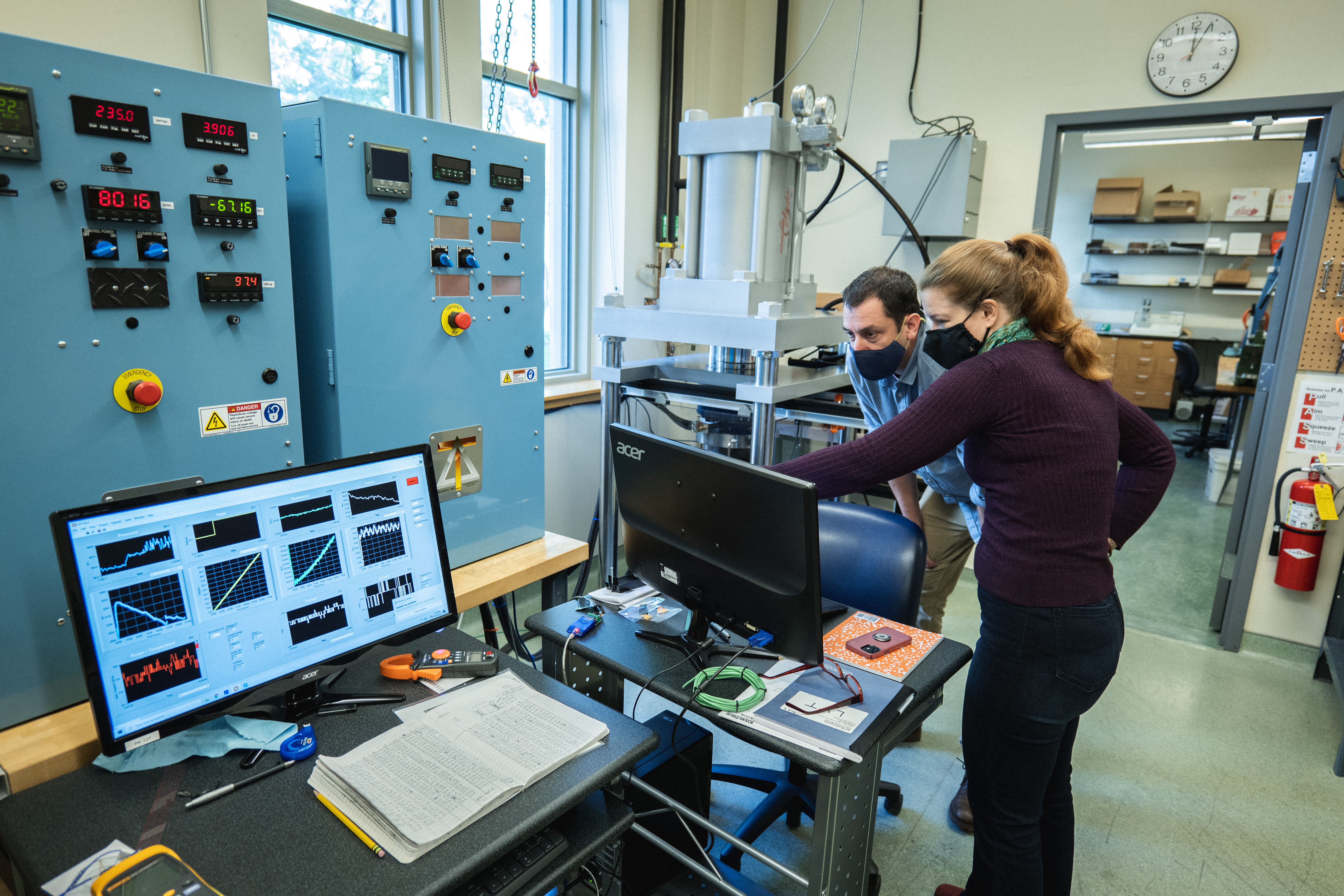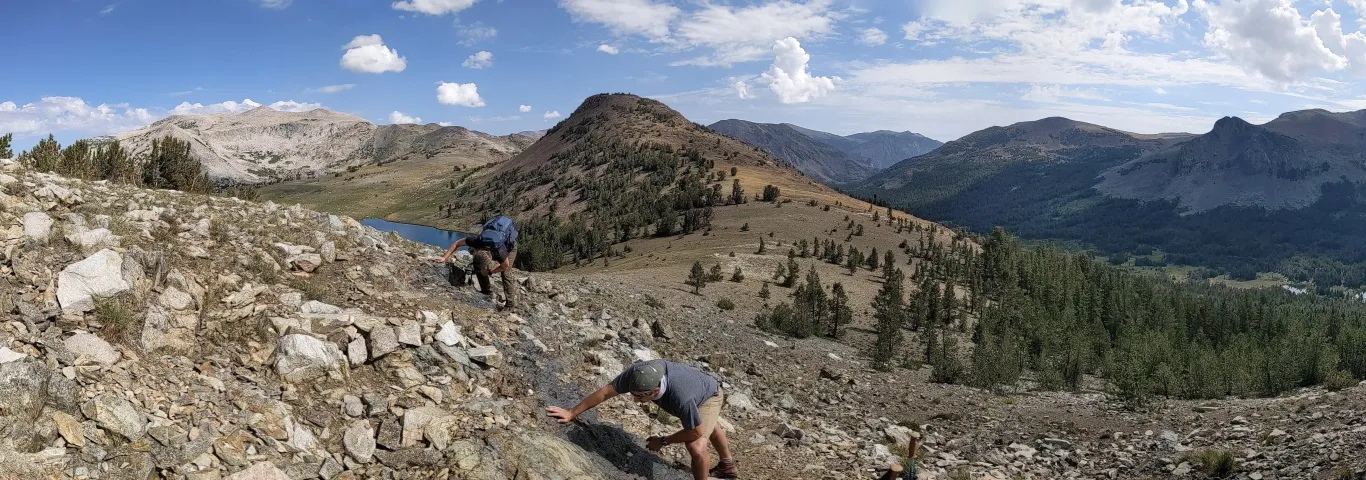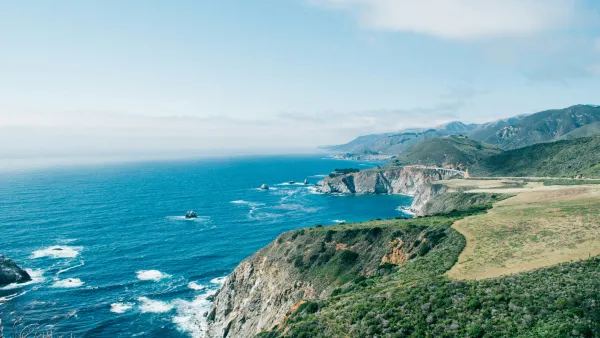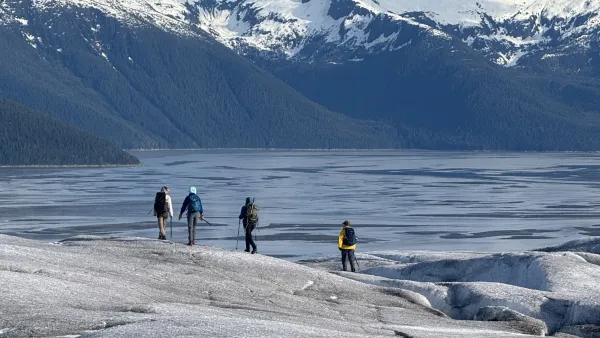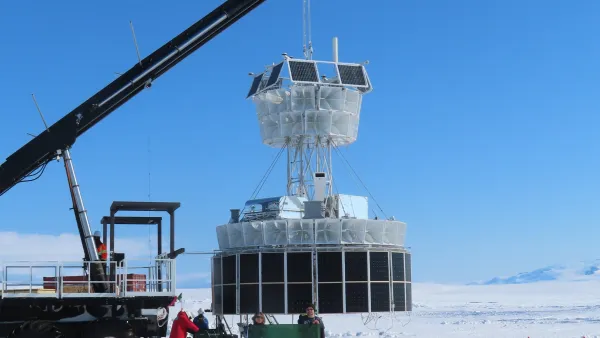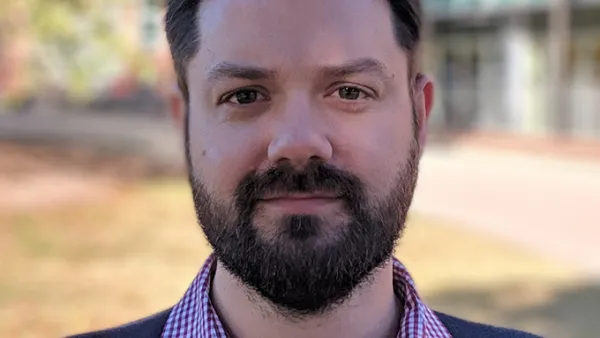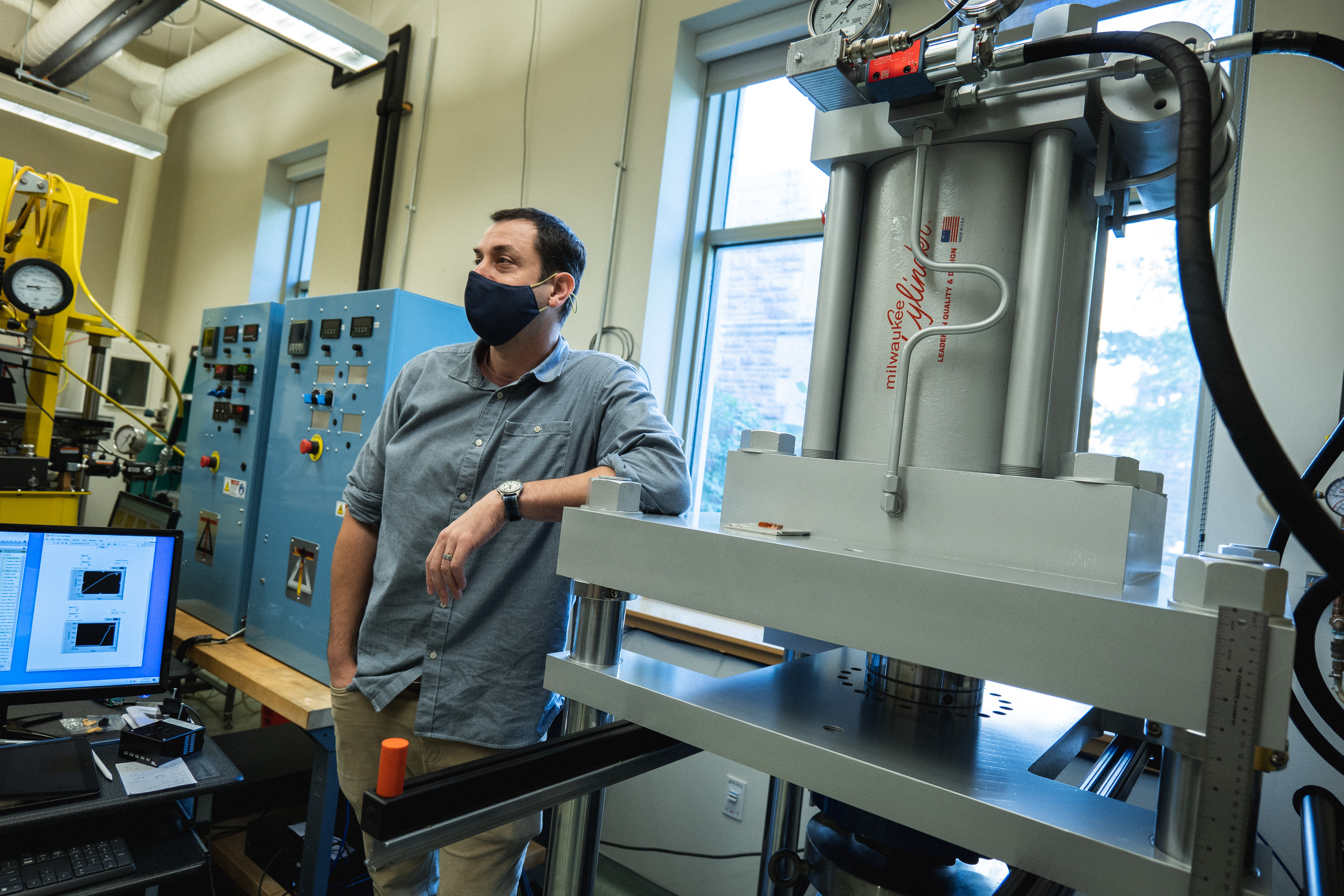
Philip Skemer, professor of Earth and planetary sciences, and his collaborators recently won a $455,396 grant from the National Science Foundation to establish Research Opportunities in Rock Deformation (RORD), an REU (Research Experiences for Undergraduates) internship program that provides laboratory and field-based research experience in rock mechanics and structural geology. RORD is designed to introduce undergraduate students from diverse backgrounds and experience levels in Earth science, geoscience, and engineering to the field of rock deformation.
“This program is the only current NSF REU site in Arts & Sciences at WashU, and it represents a significant opportunity for A&S to lead in a historically underexplored field,” Skemer said. “RORD has been years in the making, both in establishing relationships with experimental rock deformation labs and experts across the country – who will serve as mentors for each summer’s cohort of 10 students – and in developing our facilities here at WashU to support advanced experimental techniques and more student researchers.”
Rock deformation uses geology, engineering, and materials science to study the strength of rocks with applications in geology and geophysics, planetary science, natural hazards, and materials engineering. By providing opportunities for undergraduates at institutions without rock deformation facilities to come to WashU to explore the field, Skemer aims to increase the number of scientists working in this sub-discipline of Earth and planetary science.
Through the RORD program, students will have the opportunity to spend the summer working in a state-of-the-art rock deformation lab under the mentorship of an expert in the field. In preparation, Skemer and research engineer Hélène Couvy Craigg are building a new large volume torsion apparatus (LVT) in the Department of Earth and Planetary Sciences’ Rock Deformation Lab.
Development of this new rock deformation apparatus, which is supported by an additional grant from the NSF, “effectively doubles our lab capacity, allowing us to bring in more undergraduate researchers and more visitors to use our unique lab facilities,” Skemer said. The new LVT was designed and built right here at WashU and boasts upgraded capabilities and controls. “We can apply 150 tons, or about 300,000 lbs, of force to rock and mineral specimens as small as 4 millimeters in diameter, and we can do so very slowly and precisely. Using computer controls, we’re able to fine tune our experiments to mimic slow Earth processes and return more precise data,” Skemer said.
In addition to field training and access to cutting-edge laboratory equipment, RORD will also provide professional and career development opportunities, including a conference session where students can present the results of their summer research projects. Applications are due by Feb. 15 for the summer 2022 session.
